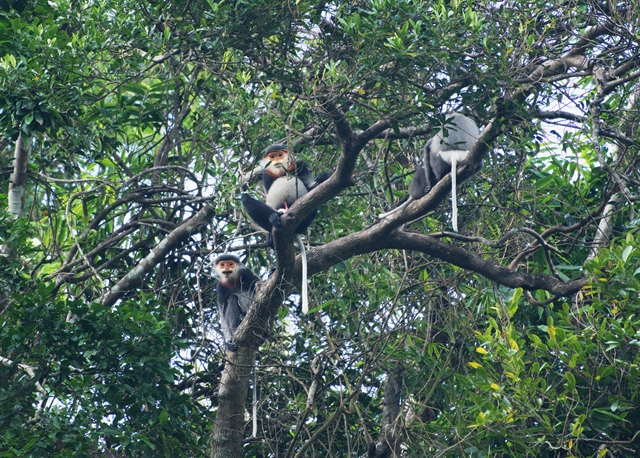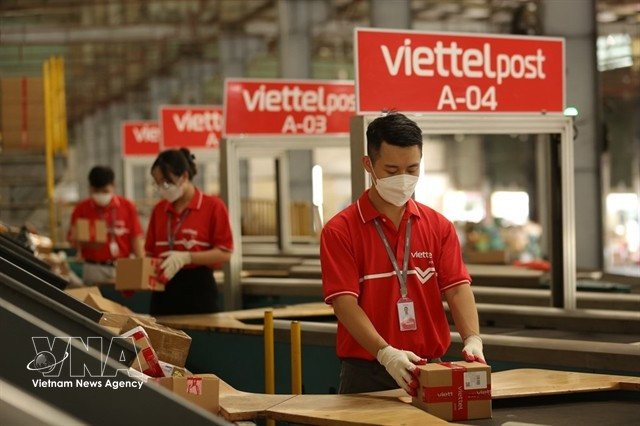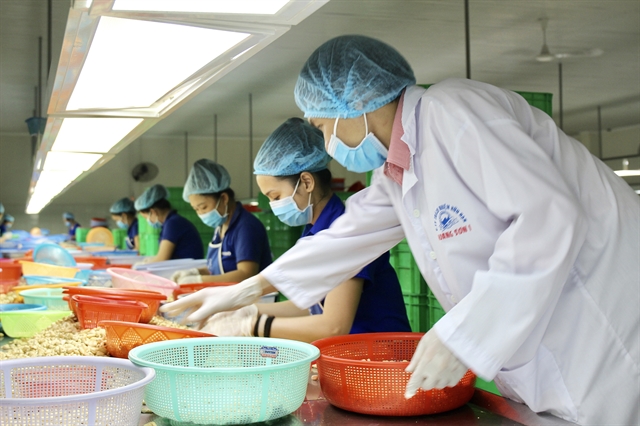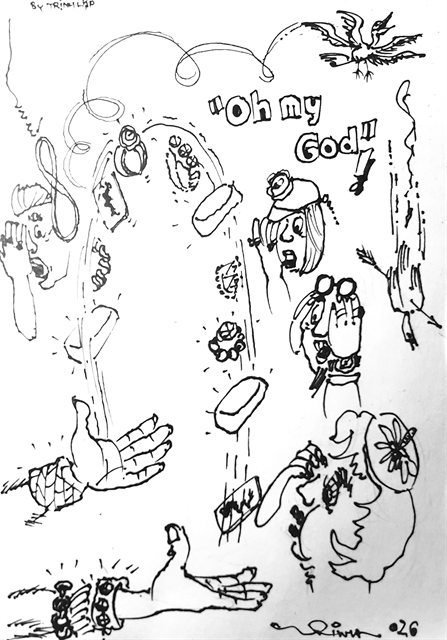 Talk Around Town
Talk Around Town

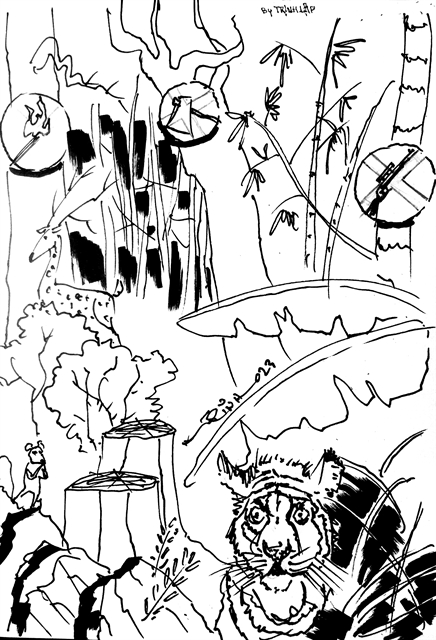 |
| Illustration by Trịnh Lập |
by Nguyễn Mỹ Hà
It's happening everywhere, not only here in Việt Nam do we cry out to protect our forest. Sir David Attenborough once said, "Ever since we arrived on this planet as a species, we've cut them down, dug them up, burnt them and poisoned them. Today we're doing so on a greater scale than ever."
Still no further development has been heard these days on the proposed Kapet Reservoir. Architect Trần Minh Tuấn suggests more smaller reservoirs be set up instead of building a larger reservoir up in the mountains to get the advantage of water running downstream.
"If we can gather daily water use, let them go through a filter system, to re-use for watering crops. We can also use daily organic waste to make compost to replace chemical fertiliser," he says.
However, the proposal by an architect was deemed unrealistic by agricultural expert Thọ Ngô. Thọ says he favours the large reservoir solution, and believes that the Kapet Reservoir would solve all water-related issues that Nam Hàm Thuận District has been facing. However, he's an ardent advocate for planting vetiver grass to keep soil from eroding and to protect hills from flash floods.
Lê Thị Mùi is founder of an online community group called Love Waste, which guides people who want to compost their daily waste to make homemade fertiliser for ornamental trees or terraced veggies and herbs.
As an admin of a group of more than 10,000 members, Mùi never misses a chance to deliver her message to "compost garbage and turn daily waste into flowers". She has been trying to convince everyone she deems influential to convince authorities that they do not need to submerge Kapet to get enough water for people and farming.
Mùi has been presenting a green 30ha farm of Võ Thông in Bình Thuận to advocate for her argument that there is no need to sacrifice the age-old primary forest for water.
"Here in Bình Thuận, the existing system of reservoirs was recorded to have met only 4.3 per cent of their designed capacity, I don't see why we need to build more reservoirs and dams," Võ Thông tells Việt Nam News.
"It means that the rainwater may not even fill up the designed capacity of this planned Kapet Reservoir."
The now-degraded forest in Mỹ Thạnh Commune could have fallen out of the protected list, but the small animals, insects and plants living there have been living in their own ecological systems for hundreds of thousands of years.
Project developers suggested they would build a three-time bigger forest to compensate for the lost trees. But this is the stuff of fantasy. Nothing can compensate for natural ecology once destroyed. This is not acceptable.
According to a United Nations Food and Agriculture Organisation (FAO) report in 2005, deforestation was the burning issue, where in Việt Nam the area of primary forests destroyed came second only to Nigeria.
From 2011 until 2019, just before the COVID pandemic, Việt Nam’s Forestry General Department reported that 22,800ha of forest was destroyed, of which 14,000ha were due to forest fire, and 9,000ha to deforestation for economic purposes.
New reforestation has been undergoing since 1996, according to the forestry authority, resulting in the growing forest zones, but the primary forest area is still declining.
After years of deforestation, reforestation started in the early 1990s and since has noted significant improvement.
According to the Proceedings of the National Academy of Sciences, a peer reviewed journal of the National Academy of Sciences, an authoritative source of high-impact, Việt Nam has grown its forest from 24.7 up to 42 per cent of the country’s total territory in 2020.
During this process, logging was severely restricted in natural forests, as Việt Nam banned the exports of raw logs and closed all log transportation from the forests.
Pro-reservoir advocates are saying "137ha of the special-use forest can be classified as the poorest part of the Núi Ông Natural Reserve."
Even if the forests in what could be the future Kapet Reservoir run out of precious hardwood, an entire ecological system there is still thriving, trying to recover from human damage. As long as the microbes and vegetation bed are still there, nature shall balance itself out.
The forest in Việt Nam consists of an ecological system including forest animals, forest plants, microbes, soil and other factors including wood trees, bamboos and bushes. We need to protect our forest to protect our genetic diversity pool, for scientific research, to protect historical relics and landmarks not only for our children's children but for a much longer period of time.
The forest is not just the forest we see, the wood, the birds and other animals. The forest means life for humans, a backbone of the economy, and the survival of a country.
When he was alive, Prime Minister Phạm Văn Đồng used to stress the importance of protecting the forest: "Losing forest means losing soil. Losing forest means losing water. Losing forest means losing your country," he said.
Today, this message can be seen printed on billboards in every forest around the country. If Việt Nam runs out of forest, all that's left will be flash floods and mud slides. There will be no future for our children.
Sir Attenborough puts it bluntly, "What humans do over the next 50 years will determine the fate of all life on the planet." VNS

